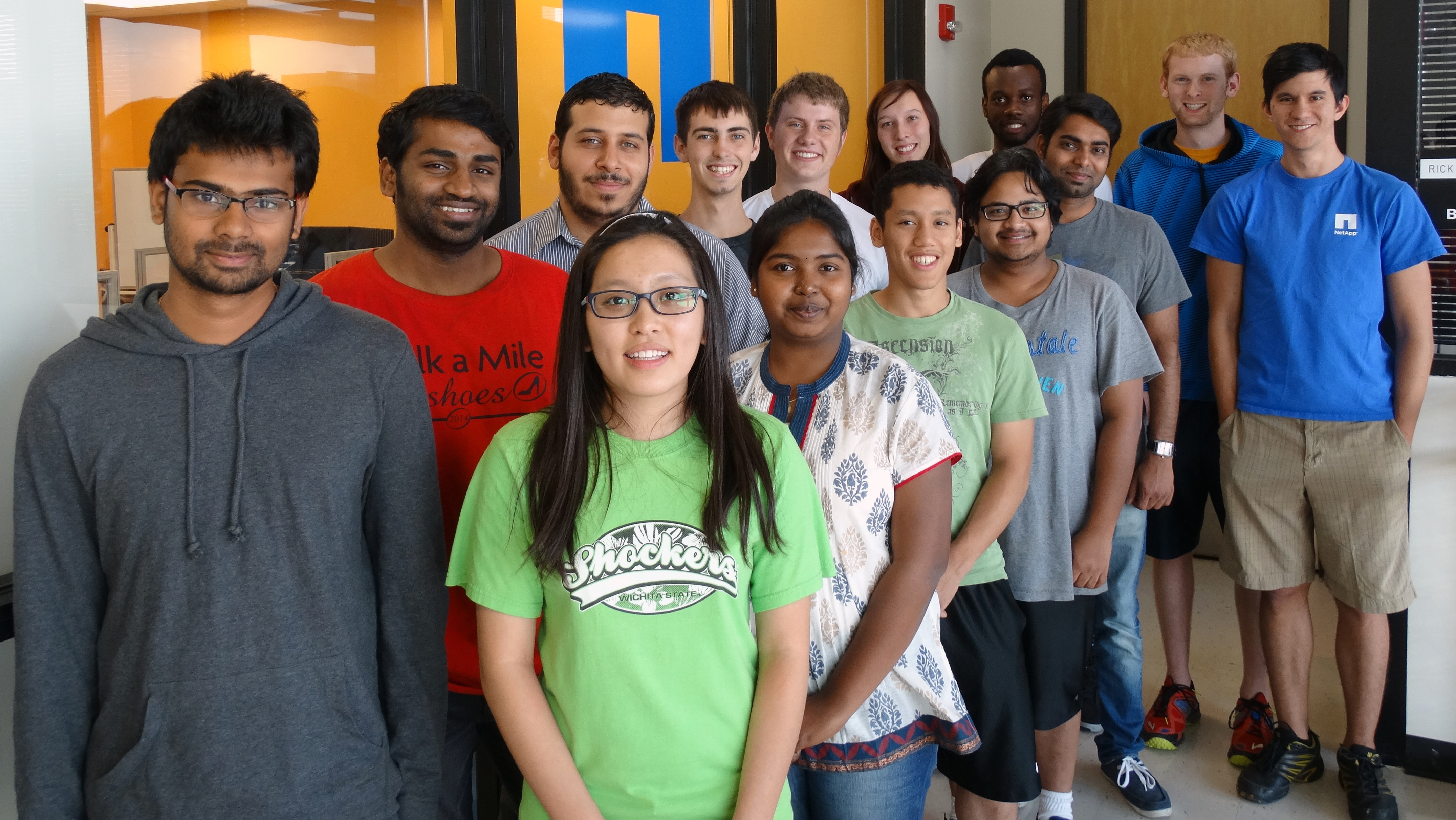Faculty, staff, students and the general public gathered for the grand opening of Wichita State University's Applied Technology Acceleration Institute Wednesday, Oct. 1, in the newly dedicated Don Beggs Hall.
Wichita State announced a significant collaboration with NetApp for the Innovation Campus in April. ATAI includes four centers: social knowledge; applied research and technology consumption; dynamic data analysis; and commercialization and inventor collaboration. ATAI is focused on building strong industry partnerships and providing experiential learning opportunities for students. It employs 18 students with plans to add more this semester.

Kenneth Russell
“By placing student workers side-by-side with partners in real work situations, both benefit from the collaboration and accelerated pace,” said Kenneth Russell, ATAI executive director. “Students are transformed with new confidence and a sense of greater purpose. They learn practical approaches, methods and capabilities that will serve them as lifelong learners in the new knowledge economy.”
The ATAI promotes a practical approach to solving complex technology problems. It is located on the second floor of Don Beggs Hall and is a key component of the Innovation Campus strategy.
The grand opening featured remarks by WSU representatives Russell; John Bardo, president; John Tomblin, vice president for research and technology transfer; Tony Vizzini, vice president for academic affairs; and NetApp representatives Rodney Dekoning, vice president chief architect, and Stan Skelton, senior director of advanced development and architecture.
Social knowledge
Following the grand opening, Russell scheduled a book-signing of his new book, “Social Knowledge: Organizational Currencies in the New Knowledge Economy,” co-authored by Renee La Londe, CEO and co-founder of iTalent Corp., and Fred Walters, general partner at iTalent. The event will take place at 5 p.m. at Watermark Books, 4701 E. Douglas.
Social knowledge involves applying social media to identify, share, document, transfer, develop, use or evaluate knowledge. The authors emphasize the principle that value is what is shared, not just what’s known.
In his book, Russell demonstrates why and how social knowledge has emerged as the leading collaboration practice for organizations. The book features sections on the evolution of social knowledge management, common implementation challenges and how companies can build their own social knowledge management platform.
“The ATAI’s Center for Social Knowledge at WSU will give students an opportunity to participate in some of the latest trends in social knowledge and help prepare them for new jobs emerging in data science and collaboration technology,” said Russell.
For more information about ATAI, visit www.wichita.edu/atai.


 ATAI
ATAI